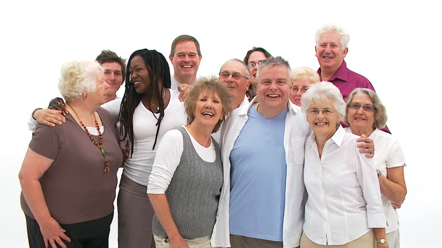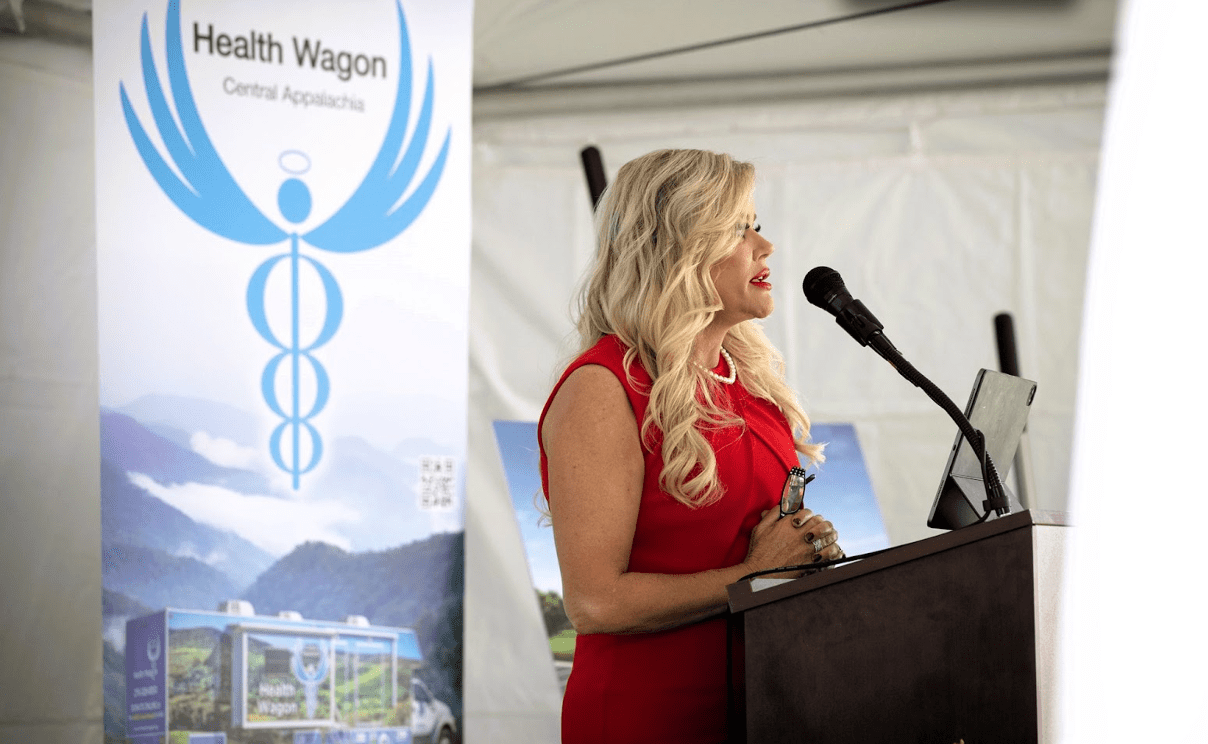Health
Five Health-Related Problems that Demand a Good Specialist Care from Home Help for the Elderly

Growing older, we sometimes need an extra hand, which will help us to overcome some situations that we do not manage to do ourselves. Promoting and maintaining health and running a good lifestyle is essential for any individual. Sometimes most of our old ones face serious health-related issues, which limits their mobility and brings some inconveniences for them.
Fortunately, our innovative world has a solution for this as well. Due to a number of professional services, they get the needed extra help, as well as better their health and feel comfort in their own homes. However, each of these companies should face these health-related issues:
1. Diabetes
The diabetes is a really serious health issue since if your blood sugar is too high, it can bring you a number of other serious problems as well. So, caring for your food and maintaining a healthy diet is among the most essential factors that each needs to keep.
Getting experience and having much knowledge helps to care for appropriate food and drink intake. So, a good company will provide the best home help for the elderly and take care for finding the professionals for them. River Garden Home Care is experienced enough to give its clients the support they need.
2. Stroke

Having a sudden interruption in the blood supply to their brain, leading a normal lifestyle becomes impossible for many people. Stoke can have an impact on a person’s independence.
Getting better from this life-threatening medical condition is possible due to good care and support. Depending on the urgency and professionalism of the treatment, the situation can become better or worse. The sooner it is treated, the less the damage will be.
3. Physical Disability
Growing older sometimes bring some serious issues related to a person’s free movement. Being in the condition of a physical disability, people sometimes find it difficult to do some ordinary things. Hence, getting help in most cases becomes a necessity for them. Good support will make the situation better and people will feel better and safe. Fully trained professionals will help the older ones in moving and doing tasks they need, which will release them from stressful situations.
4. Palliative Care
Anyone who has a serious illness, may be in a stressful situation. It can not only become a reason for depression for the person, but for family members as well. Companies, who provide with home care, should integrate palliative care in their services, since it is really essential. Good care will bring relief from the symptoms and help people to overcome the stress. Besides, it helps to better the quality of life and relieve a person from pain as much as possible.

5. Catheter and Stoma Care
Based on different health-related issues, many people need to insert a certain tube into the bladder, in order to have urine pass into a drainage bag. In order not to limit your independent live, you need to ask for the professional help, who will take the right catheter and stoma care. It is an essential issue, since if you do not have proper care you may face serious problems and infections.
Conclusion
Besides the illnesses and issues related to mobility, you may have other reasons for asking professional care. Sometimes the old ones need them just for other purposes as well. Some of them do not manage to accept the fact that they are growing old, and they start to feel lonely and depressed. They need just simple social interaction and want to get involved in different activities. Coming out of these situations, they hire such services, whose professional and caring workers bring back their ordinary way of living.
Health
Dr. Teresa Tyson, DNP, Discusses The Hidden Healthcare Crisis in Remote Regions

Image source: Dr. Teresa Tyson, DNP, and Health Wagon
Access to healthcare remains a challenge for many individuals living in rural and remote areas, where medical facilities are scarce or difficult to reach. Many residents endure long travel times for even basic medical services, leading to delayed diagnoses and worsening health conditions. The lack of healthcare professionals further compounds the issue, leaving communities with inconsistent or inadequate care.
While technology and government initiatives have made strides in addressing these disparities, Dr. Teresa Tyson, DNP, notes how there are many obstacles still hindering widespread improvement. Bridging the healthcare gap requires a combination of innovative solutions, infrastructure development, and policy changes to ensure that medical services reach those who need them most.
Limited Access to Medical Care
Many remote regions struggle with a severe lack of healthcare facilities, leaving residents with minimal options for medical treatment. Hospitals and clinics are often located hours away, making even routine checkups a logistical challenge.
A shortage of medical professionals further worsens the situation, as many doctors and nurses prefer to work in urban areas with better resources and career opportunities. As a result, rural communities often rely on understaffed clinics or visiting healthcare workers who may not be available consistently. This leads to delayed diagnoses and inadequate treatment for chronic conditions. Many rural clinics operate with limited medical supplies, making it difficult to provide comprehensive care even when healthcare professionals are available.
In some cases, patients must travel long distances just to receive basic care, often at great personal and financial costs. The burden of transportation, time off work, and the uncertainty of available treatment discourage many from seeking medical attention until their conditions become severe.
Health Risks and Consequences
Delays in medical care often mean that conditions that could have been treated early turn into serious health complications. Many individuals in remote areas develop chronic illnesses that go undiagnosed for years simply because healthcare services are too far away or difficult to access. Diseases that are manageable with regular monitoring, such as diabetes or hypertension, frequently spiral out of control due to the lack of consistent medical supervision.
Beyond physical health, the absence of adequate healthcare also takes a toll on mental well-being. Isolation and limited access to mental health professionals leave many struggling with anxiety, depression, and other psychological conditions without proper support. In small, tight-knit communities, stigma around mental health can make it even harder for individuals to seek help, further exacerbating the crisis.
Preventable diseases continue to spread in these areas due to the lack of vaccinations, screenings, and early interventions. Without proper healthcare infrastructure, outbreaks of common illnesses can have devastating effects, particularly on children and the elderly. The combination of poor access, financial barriers, and limited awareness creates a cycle where minor health concerns escalate into life-threatening conditions.
Challenges in Expanding Healthcare Services
Building and maintaining healthcare infrastructure in remote regions comes with considerable hurdles. Poor road conditions and unreliable transportation make it difficult for medical professionals to reach patients, and in some cases, ambulances are unavailable, forcing residents to rely on personal vehicles or community efforts to transport those in need. In areas with extreme weather conditions, seasonal challenges further complicate healthcare delivery, cutting off entire communities during certain times of the year. These conditions make it nearly impossible for emergency medical teams to provide timely assistance in critical situations.
Funding remains a major obstacle, as rural healthcare facilities often struggle with limited financial resources. Many small clinics operate on tight budgets, lacking essential medical equipment and supplies. Without sufficient investments, these facilities cannot expand their services, making it harder to attract and retain qualified healthcare workers. As a result, many professionals opt to work in urban settings where they have access to better salaries, career advancement, and modern medical technology.
Role of Technology in Bridging the Gap
Advancements in technology are offering new ways to connect patients in remote areas with medical professionals. Telemedicine has made it possible for individuals to consult doctors without having to travel long distances, reducing delays in diagnoses and treatment. Virtual consultations, remote monitoring, and mobile health apps allow patients to receive medical advice without needing to visit overcrowded or distant healthcare facilities. In addition to telemedicine, artificial intelligence is being used to assist in diagnosing conditions remotely, helping bridge the gap in specialist care.
Despite its potential, implementing technology-driven healthcare solutions in rural regions is not without obstacles. Many areas lack reliable internet access or the necessary digital literacy to make full use of telehealth services. Even when technology is available, the cost of devices and connectivity can create another barrier, preventing low-income households from benefiting fully. Addressing these issues requires a combination of infrastructure development, education, and financial support to ensure that technology can be effectively integrated into rural healthcare systems.
Efforts to Improve Rural Healthcare
Governments and nonprofit organizations are actively working to address the healthcare challenges faced by remote communities. Investment in medical outreach programs, mobile clinics, and training initiatives for local healthcare workers has helped bring essential services to those who need them most. Some regions have introduced incentive programs to encourage doctors and nurses to work in underserved areas, offering student loan forgiveness, housing assistance, or higher salaries.
Community-led initiatives also play a crucial role in improving healthcare access. Local volunteers and advocacy groups often step in to provide educational workshops, vaccination drives, and wellness programs tailored to the specific needs of their communities. These grassroots efforts help bridge gaps where formal healthcare systems fall short, ensuring that residents receive at least some level of medical support.
Future Prospects for Remote Healthcare
Innovations in medical technology, policy changes, and raising awareness are shaping the future of rural healthcare. The expansion of telehealth services, combined with improved infrastructure, has the potential to make healthcare more accessible and efficient. Continued investment in mobile medical units and community-based programs could ensure that even the most isolated areas receive the care they need. Research into low-cost, portable medical devices is also opening new doors for remote diagnostics and treatment.
Sustained progress will depend on collaboration between governments, healthcare providers, and local communities. Long-term solutions require more than temporary programs; they demand systemic changes that prioritize equitable medical access. If these efforts continue to grow, rural healthcare systems may finally move toward lasting improvements that benefit future generations.
-

 Tech4 years ago
Tech4 years agoEffuel Reviews (2021) – Effuel ECO OBD2 Saves Fuel, and Reduce Gas Cost? Effuel Customer Reviews
-

 Tech6 years ago
Tech6 years agoBosch Power Tools India Launches ‘Cordless Matlab Bosch’ Campaign to Demonstrate the Power of Cordless
-

 Lifestyle6 years ago
Lifestyle6 years agoCatholic Cases App brings Church’s Moral Teachings to Androids and iPhones
-

 Lifestyle4 years ago
Lifestyle4 years agoEast Side Hype x Billionaire Boys Club. Hottest New Streetwear Releases in Utah.
-

 Tech6 years ago
Tech6 years agoCloud Buyers & Investors to Profit in the Future
-

 Lifestyle5 years ago
Lifestyle5 years agoThe Midas of Cosmetic Dermatology: Dr. Simon Ourian
-

 Health6 years ago
Health6 years agoCBDistillery Review: Is it a scam?
-

 Entertainment6 years ago
Entertainment6 years agoAvengers Endgame now Available on 123Movies for Download & Streaming for Free
